Background
The United Arab Emirates had introduced the Economic Substance Regulations (“ESR”) (Cabinet Decision No. 31/2019) [“Original Regulations”], which came into effect on 30th April 2019. The Ministry of Finance had issued a guidance on the application of the Regulations which was enforced on 11th September 2019 (Ministerial Decision No. 215 of 2019), and the Determination of Regulatory Competencies lists the Regulatory Authorities tasked with the administration and enforcement of the Regulations (Cabinet Decision No. 58/2019).
On 10th August 2020, the amended set of regulations was issued by Cabinet of Ministers Resolution No. 57 of 2020 (“New Regulations”), followed by the updated guidance issued by the Ministerial Decision No. 100 of 2020 (“New Guidance”). The New Regulations had repealed and replaced the Original Regulations.
The New Regulations are intended to be implemented retrospectively on all the licensees in the UAE since 1st January 2019. In this regard, the licensees are obliged to re-evaluate the existing ESR classifications and align it in accordance to the New Regulations. The New Regulations provide more transparency and needs businesses in UAE to be accountable and consequently avoid harmful tax practices.
Economic Substance
Economic substance describes the economic (operational) reality of a corporate structure which has been put in place because of international tax optimisation reasons. A number of international tax planning structures ( holding and sub-holding companies, finance companies, intellectual property (IP) structures and trading companies) have been and/are being established to benefit from tax laws of other foreign jurisdictions or in order to benefit from the favourable conditions of double taxation treaties signed between two countries.
The UAE had introduced economic substance regulations, and as a result, all UAE businesses that may be subject to these regulations should be prepared to take action and ensure compliance
Key Changes
- Definition of LicenseeIn the New Regulation, a Licensee is defined to include:
- a judicial person – a corporate legal entity with separate legal personality from its owner
- an unincorporated partnership – a form of partnership that carry on relevant activity in UAE
Natural Persons, sole proprietors, trust and foundations which were considered as a Licensee as part of the Original Regulations, are no longer in the scope of the New Regulations and hence, they do not require to meet the Economic Substance Test or file a notification.
The branches of foreign company(s) registered in UAE do not require separate legal personality and will be considered under their parent company(s) or head office(s). The New Guidance clarifies that the business requires to submit a single Economic Substance Report for all the branches of the UAE business. The UAE branches of foreign company(s) are not subject to the New Regulations if its relevant incomes is reported in tax returns of such foreign company(s).
- Economic Substance TestA Licensee carrying out the Relevant Activity is required to comply with the “Economic Substance Test” and provide the required information to the Regulatory Authorities. The Economic Substance Test in relation to the Relevant Activity carried out by the Licensee must satisfy the following criteria:
- the Licensee conducts the necessary Core Income Generating Activity (“CIGA”) in the State
- the Relevant Activity is directed and managed in the State
- with regard to the Level of Relevant Activity in the State the Licensee must ensure to employ adequate number of qualified full time employees resident in the State, incur adequate operating expenditure in the State and have adequate physical assets in the State
- Exempted LicenseeThe exempted licensee was introduced as a new category under licensee under the New Regulations, which include:
- Investment fund;
- Branches of foreign companies subject to tax outside the UAE;
- A business wholly owned by UAE residents, which are not part of a multinational group and only carry out business activities in the UAE;
- Licensee which are tax resident outside the UAE; and
- Entities directly or indirectly owned 51% or more by the UAE Governments are no longer specifically exempted as per the revised New Regulations. They will have to analyse as per the new criteria set out in the New Regulations now issued.
- Relevant activities and sufficient economic substanceThe New Regulations has not introduced any new list of activities and the Relevant Activity list remains as set out below:
- Banking Business
- Insurance Business
- Investment Funds Management Business
- Lease Financing Business
- Headquarter Business
- Shipping Business
- Holding Company Business
- Intellectual Property Business
- Distribution & Service Centre Business
The New Regulations mandate the Licensees that carry out any of the Relevant Activity(s) to maintain/demonstrate adequate ‘economic substance’ in the UAE in relation to the activities they undertake (Economic Substance Test)
The New Regulations entails minor changes to what the ESR considers relevant activities and what licensees performing such exercises must show adequate economic substance in the UAE. This includes explanations relating to the relevant activities to distribution and services business and a high-hazard intellectual property business.
The New Regulations defines Relevant Income as all gross income from a Relevant Activity that is recorded in the books under the accounting standards applicable.
- Regulatory AuthorityThe regulatory authorities for ESR are the Central Bank, Free Zone Authorities (including Financial Zone Authorities), The Ministry of Economy, Insurance Authority and Securities and Commodities Authority. These regulatory authorities are authorized to:
- Collect the notification and ESR reports;
- Review the notification and reports and other documents for accuracy;
- Assess the documents provided by Exempted Licensee, whether sufficient information have been provided;
- Exercise any powers as required to implement the New Regulations; and
- Exercise powers as required to implement any decisions of the National Assessing Authority.
The UAE Federal Tax Authority (“FTA”) has been appointed as the National Assessing Authority and is authorized to:
- Evaluate and determine whether the licensees or exempted licensees have met the requirements of the Economic Substance Test;
- Levy administrative penalties if/as required for non- compliance;
- Hear and decide any appeals filed by the licensees; and
- Practice any powers implemented in the New Regulations.
- Reporting MechanismThe New Regulations affirm that the notifications must be documented electronically on the Ministry of Finance (MoF) portal within six months of the financial year of the licensees. Likewise, businesses that have submitted the notifications to their regulatory authorities will have to re-submit the notifications on the MoF portal. The New Regulations do not state when the MoF portal will be accessible.
- PenaltiesThe New Regulations have increased the penalties for non-compliance of the ESR. A Licensee may appeal to the National Assessing Authority against any fines imposed on them. The penalties include:
- Failure to submit notification – AED20,000.00;
- Failure to submit ESR report – AED 50,000.00
- Inaccurate information and documents – AED 50,000.00; and
- Repeating a violation – AED 400,000.00
Conclusion
The New Regulations provide additionally clarity and guidance with respect to the roles and responsibilities of the various UAE authorities under the ESR. All the businesses in UAE are recommended to evaluate and reassess whether they fall under the relevant activities within the scope of the ESR and to ensure if they meet the requirements of the Economic Substance Test in regard to the relevant activities. This is both a subjective and quantitative assessment that would include operational, legal, financial, tax and governance matters.
Thus, we strongly recommend all businesses in the UAE to check whether they fall within the scope of the New Regulations and implement the strategies accordingly.

